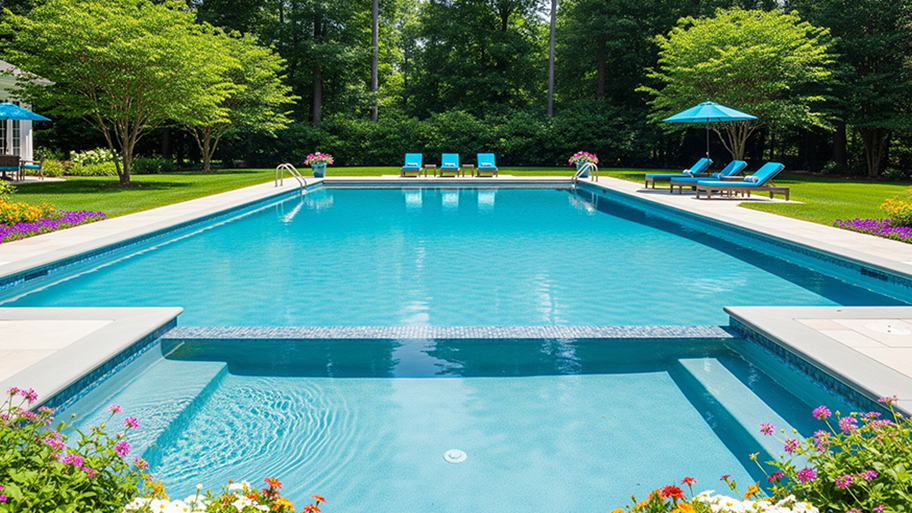
Considering a swimming pool for your backyard? Find out everything you need to know about in-ground pool costs, from materials to labor and more.
Keep your cool during this pool project with some careful planning


Let’s be honest. Most people don’t want to feel like they’re taking a cold plunge when they jump into their pool. Sure, there’s a time and a place, such as your local spa or a New Year's Day polar plunge. Pool heaters will make the water more comfortable, but there are a lot of different options. To narrow it down and keep your installation on track, discuss these five pool heater questions with your contractor.
People in colder climates can use a heater to extend the length of their swim season, but in a milder climate, it’s not as much of a necessity. This is especially true if you don’t use your pool that often. Talk to your contractor to understand if heating your pool is worth the cost.
Before you can start your installation, you’ll need to discuss the options with your installer. There are four types of pool heaters—gas, solar, electric resistance, or heat pumps. Some perform better in certain climates. They all come at different price points. Overall, gas is one of the most popular because it heats your pool the fastest, but it’s not always the best option when you factor in lifespan, installation, running costs, and emissions.
Discuss timelines with your contractor so you can set your expectations. It can take anywhere from a day to a few days to install a pool heater depending on the complexity of the job. They’ll also need to fit you into their schedule, which may be tighter in the summer when pool projects are plentiful.
Get ready to discuss the volume of your pool with your contractor. This helps them choose the right size heater. Pool heaters range anywhere from 30,000 BTU to 400,000 BTU, but it also depends on the energy source. You’ll need a minimum of 50,000 BTUs for the average 5,000 to 10,000 gallon pool.
Since energy is a running cost, it’s also a good idea to inquire about monthly energy bills. Certain pool heaters use more energy than others, which will rack up long-term costs.
Proper maintenance will keep your heater working for swim seasons to come, so make sure you discuss it with your local pool heater pro. This will include things like how to clean the heater and the best temperature settings. Ideally, a swimming pool should be somewhere between 78 and 82 degrees Fahrenheit.
From average costs to expert advice, get all the answers you need to get your job done.

Considering a swimming pool for your backyard? Find out everything you need to know about in-ground pool costs, from materials to labor and more.

Fiberglass pools are a solid choice. If you are looking into installing one at home, read this guide to learn all the ins and outs of fiberglass pool costs.

Find out all you need to know about electric pool cover costs so you can decide if it's the right fit for you and which type you should get.

A pool cover protects against debris and temperature changes while also preventing accidents. This guide breaks down the five main types of pool covers to choose from.

Baking soda is a budget-friendly way to tackle DIY pool maintenance. Our guide explains how to add baking soda to a pool.

It’s always best to hire a pool electrician to work on your pool's electrical systems. Our guide breaks down everything you need to know about hiring this pro for your pool.